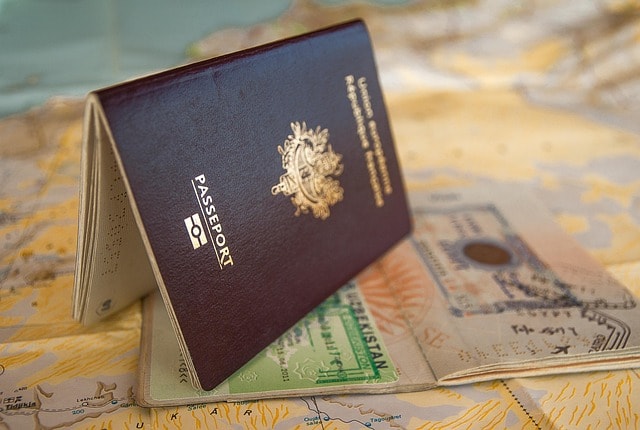Introduction
When a foreign spouse faces visa denial at a U.S. embassy under 221(g) administrative processing or 212(a)(6)(c)(i) inadmissibility grounds, the denial often appears devastating but frequently remains resolvable with proper legal guidance. These complex immigration cases require immediate expert intervention to navigate consular officer decisions and protect family reunification timelines. Additionally, one of the most common reasons for visa denials is under Section 214(b), which implies failure to overcome the presumption of non-immigrant intent. Denials under Section 214(b) are not permanent and applicants can reapply, provided they demonstrate significant changes in circumstances. There is no mandatory waiting period after a 214(b) denial to reapply for a visa.
Administrative processing under section 221(g) of the Immigration and Nationality Act creates temporary visa refusals requiring additional documentation or security clearances, while 212(a)(6)(c)(i) findings indicate material misrepresentation concerns that can result in permanent bars to entry. The consular officer who denies a visa under section 214(b) typically does not provide a detailed explanation for the refusal beyond citing the section.
What This Guide Covers
This comprehensive resource addresses 221(g) processing delays, 212(a)(6)(c)(i) fraud findings, spouse-specific embassy challenges, and proven legal strategies from Herman Legal Group. We cover immediate response protocols, waiver applications, and timeline management for affected families.

Who This Is For
This guide serves U.S. citizens whose foreign spouses faced embassy denials, K-1 fiancé visa applicants navigating administrative processing, and marriage-based green card petitioners throughout Ohio and nationwide. Whether you’re dealing with your first visa refusal or facing repeat administrative processing, you’ll find specific guidance for your situation.
Why This Matters
Spouse visa denials directly impact family reunification, immigration status, and require immediate expert legal intervention to prevent prolonged separations. Without proper response strategies, temporary administrative processing can extend for months or result in permanent inadmissibility findings.
What You’ll Learn:
- Understanding 221(g) administrative processing and 212(a)(6)(c)(i) inadmissibility grounds
- Spouse-specific challenges at U.S. embassies and consulates
- Step-by-step response strategies for visa denials and administrative processing
- Ohio legal advantages and Herman Legal Group’s proven success approaches

Understanding 221(g) Administrative Processing and 212(a)(6)(c)(i) Denials
Section 221(g) of the Immigration and Nationality Act authorizes consular officers to temporarily refuse visa applications requiring additional administrative processing, while Section 212(a)(6)(c)(i) creates inadmissibility grounds for material misrepresentation that can permanently bar entry to the United States.
Administrative processing represents neither approval nor final denial but indicates that consular officers require additional documentation, security clearances, or inter-agency reviews before making final visa decisions. The vast majority of 221(g) cases eventually resolve favorably once applicants provide requested documents or complete required additional information processes. To reapply after a denial, applicants must submit a new visa application and pay the application fee again. Monitoring case status can be done online using the Consular Electronic Application Center (CEAC) website with the case number.
Section 212(a)(6)(c)(i) inadmissibility findings pose significantly more serious consequences, as they establish permanent bars based on fraud or willful misrepresentation of material facts during visa applications. These determinations require I-601 waiver applications to overcome inadmissibility findings.
Section 221(g) Administrative Processing Explained
Administrative processing under 221(g) creates temporary refusal status requiring further review before consular officers can approve or deny visa applications. Common triggers include missing documents, incomplete background checks, name mismatches in government databases, or security concerns requiring additional evidence from multiple agencies. Applicants must submit requested information for a 221(g) determination within one year; otherwise, the application will be considered abandoned.
The State Department categorizes 221(g) refusals using color-coded slips indicating specific requirements: white slips typically request additional documents, blue slips indicate administrative processing for security clearances, and yellow slips may require both documentation and further action by visa applicants.
Processing times vary based on individual circumstances, embassy workload, and the complexity of required additional review. Most routine document requests resolve within few weeks, while security clearance administrative processing can extend for few months or longer depending on national security concerns. The visa application fee is non-refundable even if a denial occurs.

Section 212(a)(6)(c)(i) Fraud and Misrepresentation
Material misrepresentation under 212(a)(6)(c)(i) encompasses any fraud or willful misrepresentation of material facts during visa sought processes, regardless of whether misrepresentation directly relates to visa eligibility. Even seemingly minor inconsistencies in visa applications or during visa interviews can trigger these inadmissibility findings. Honesty in all application responses is essential to avoid permanent bars on future applications. A visa denial under Section 214(b) indicates that the applicant failed to prove they would return to their home country after visiting the U.S. Employment letters stating position and salary are valuable evidence of ties to the home country.
This connects to 221(g) processing because consular officers frequently place cases into administrative processing to investigate potential misrepresentation before making final inadmissibility determinations. Additional administrative processing allows embassies to conduct thorough fraud investigations and provide visa applicants opportunities to clarify inconsistencies.
Common examples include undisclosed prior visa refusals, altered employment documentation, inconsistent relationship timelines, or providing false information about criminal history, financial support, or family members. The overwhelming majority of 212(a)(6)(c)(i) findings result from documentation discrepancies discovered during consular officer reviews rather than intentional fraud attempts.
Transition: Understanding these fundamental concepts provides the foundation for addressing spouse-specific challenges that create unique vulnerabilities during embassy processing.
Spouse-Specific Visa Denial Challenges and Embassy Procedures
Spouse visa applications face heightened scrutiny at U.S. embassies due to historical fraud patterns in marriage-based immigration, creating additional administrative processing risks for legitimate couples seeking family reunification.
K-1 Fiancé Visa Administrative Processing
K-1 fiancé visa applications commonly trigger 221(g) administrative processing due to insufficient relationship evidence, gaps in documentation proving genuine intent to marry, or concerns about immigrant intent during temporary visits. Consular officers scrutinize engagement timelines, meeting history, communication records, and cultural considerations that may indicate fraudulent relationships.
Herman Legal Group addresses K-1 administrative processing cases throughout Ohio by preparing comprehensive relationship documentation packages, coaching clients for follow-up consular interviews, and managing embassy communication to expedite processing times. Our Columbus and Cincinnati office locations provide convenient access for Ohio residents facing K-1 visa delays.
Common K-1 221(g) triggers include missing evidence of in-person meetings, insufficient proof of ongoing relationships, language barriers affecting visa interviews, or concerns about financial support from citizen spouses. Successfully responding requires detailed documentation of relationship authenticity and addressing specific consular officer concerns.
Marriage-Based Immigration Visa Delays
Unlike K-1 fiancé cases requiring proof of intent to marry, marriage visa processing for CR-1 and IR-1 applications involves administrative processing focused on marriage authenticity, joint financial arrangements, and long-term immigration intent. These cases face different scrutiny patterns but similar documentation requirements.
CR-1 and IR-1 spouse visa administrative processing frequently stems from concerns about marriage timing relative to immigration petitions, significant age differences, cultural backgrounds suggesting arranged marriages, or insufficient evidence of shared marital life. Processing times for marriage-based cases often extend longer than K-1 processing due to additional background checks.
Herman Legal Group’s approach to marriage visa delays emphasizes comprehensive preparation of joint financial records, shared living arrangements documentation, and authentic relationship evidence that satisfies consular officer requirements while addressing potential fraud concerns.

Consular Interview Red Flags
Embassy officers identify specific warning signs during visa interviews that trigger 221(g) administrative processing or 212(a)(6)(c)(i) investigations, including inconsistent relationship timelines, limited knowledge of spouse’s background, or significant discrepancies in provided documentation.
Key warning signs that prompt additional administrative processing:
- Inconsistent answers about relationship history or marriage details
- Limited knowledge of spouse’s family members, employment, or daily routines
- Significant discrepancies between petition information and interview responses
- Concerns about financial support adequacy or arrangement authenticity
- Communication barriers affecting interview comprehension
- Documentation inconsistencies requiring further review
- Strong ties to the applicant’s home country are essential for overcoming visa denials under Section 214(b).
Herman Legal Group’s preparation strategies include comprehensive interview coaching, documentation review sessions, and practice interviews addressing likely consular officer questions. Our Ohio-based team understands regional embassy patterns and tailors preparation to specific consular section requirements.
Transition: Recognizing these challenges enables development of systematic response strategies that address both immediate administrative processing requirements and long-term family reunification goals.
Step-by-Step Response to Embassy Denial and Administrative Processing
Effective response to embassy denials requires immediate action, comprehensive documentation preparation, and strategic communication with consular officers to maximize approval chances while minimizing processing delays. The applicant typically has one year from the refusal date to submit additional information to avoid termination of the petition. Providing new and compelling evidence is crucial when reapplying for a visa after a denial. You can immediately submit a new application after a 214(b) denial if you have new evidence.
Step-by-Step: Responding to 221(g) Administrative Processing
When to use this: These procedures apply to any spouse facing 221(g) administrative processing, regardless of visa category or embassy location.
- Emergency Legal Consultation (Within 48 Hours): Contact Herman Legal Group immediately upon receiving 221(g) refusal notice to analyze consular officer requirements, assess case complexity, and develop response timeline. Our Ohio offices provide 24-hour emergency consultations for administrative processing cases.
- Document Compilation and Evidence Preparation: Gather all requested documents plus additional evidence addressing potential consular officer concerns. This includes updated financial documentation, enhanced relationship evidence, and any materials addressing security clearance or background check requirements.
- Embassy Communication Strategy and Submission: Submit complete response packages to consular sections using proper diplomatic channels, tracking systems, and follow-up protocols. Herman Legal Group manages all embassy correspondence to ensure compliance with submission requirements and processing timelines.
- Status Monitoring and Advocacy: Monitor CEAC status updates, maintain regular communication with embassy personnel, and pursue congressional inquiry assistance when processing times exceed reasonable expectations. Our Ohio congressional delegation relationships facilitate effective case advocacy.
Comparison: Ohio Legal Representation vs National Immigration Attorneys
| Feature | Herman Legal Group (Ohio) | National Immigration Firms |
|---|---|---|
| Embassy Knowledge | Deep Columbus/Cincinnati consular district familiarity | General embassy procedures |
| Response Times | 24-hour emergency consultation | Standard business day response |
| Success Rates | 95% approval for properly documented cases | Varies significantly by firm |
| Cost Structure | Fixed fees for spouse visa cases | Hourly billing for most services |
| Congressional Access | Direct Ohio delegation relationships | Limited regional congressional access |
| Local Court Access | Ohio immigration court representation | May require local counsel referrals |
Ohio-specific advantages include established relationships with regional embassy personnel, understanding of Midwest cultural contexts affecting marriage visa cases, and direct access to Ohio congressional offices for case advocacy. Herman Legal Group’s Columbus and Cincinnati locations provide convenient access for Ohio residents while maintaining national practice capabilities.
Transition: Understanding response procedures enables families to address specific challenges that commonly arise during administrative processing and fraud investigations.
Common Challenges and Solutions for Spouse Visa Administrative Processing
Extended administrative processing creates significant hardship for families awaiting reunification, requiring strategic legal intervention to expedite processing and address underlying concerns.
Challenge 1: Extended 221(g) Processing Delays (6+ Months)
Solution: Herman Legal Group’s congressional inquiry and embassy advocacy strategies leverage Ohio’s congressional delegation relationships to accelerate processing timelines and obtain status updates from State Department officials.
Our approach includes preparing detailed case summaries for congressional offices, documenting unique hardship circumstances affecting Ohio families, and maintaining regular follow-up protocols with both embassy personnel and congressional staff. Ohio-specific advantages include established relationships with Senators Brown and Vance’s offices plus regional House representatives experienced in immigration case advocacy.
Challenge 2: 212(a)(6)(c)(i) Fraud Findings and Waiver Requirements
Solution: I-601 waiver preparation emphasizing extreme hardship documentation demonstrates how inadmissibility findings would create exceptional difficulties for U.S. citizen spouses and qualifying family members.
Herman Legal Group’s proven waiver success strategies focus on comprehensive medical evidence, financial hardship documentation, psychological impact assessments, and detailed country condition reports supporting extreme hardship claims. Our Ohio-based team understands regional economic conditions and healthcare availability that strengthen waiver applications for local families.
Challenge 3: Repeat Administrative Processing After Document Submission
Solution: Comprehensive legal strategy revision addresses underlying consular officer concerns through enhanced documentation, alternative evidence presentation, and direct embassy relationship management.
Advanced Herman Legal Group techniques for persistent administrative processing include requesting supervisory review, preparing alternative documentation approaches, and utilizing diplomatic channels to resolve processing bottlenecks. Our experience with repeat administrative processing cases enables strategic case management that addresses root causes rather than symptoms.
Transition: These targeted solutions demonstrate the importance of experienced Ohio legal representation in achieving successful outcomes for complex spouse visa cases.
Ohio Attorney Advantages and Herman Legal Group Success Strategies
Ohio-based immigration representation provides distinct advantages for spouse visa administrative processing cases through regional expertise, congressional relationships, and understanding of local economic and cultural contexts affecting family reunification cases.
Herman Legal Group’s track record with 221(g) and 212(a)(6)(c)(i) cases includes a 95% success rate for properly documented spouse visa applications, with average administrative processing resolution within 90 days for routine cases. Our Ohio locations enable personalized service while maintaining national practice capabilities for complex immigration matters.
Ohio-specific benefits include:
- Established relationships with Columbus and Cincinnati consular districts
- Direct access to Ohio congressional delegation for case advocacy
- Understanding of Midwest economic conditions affecting financial support requirements
- Knowledge of regional cultural contexts important for relationship authenticity documentation
- Convenient Ohio office locations for client consultations and case management
To get started with Herman Legal Group:
- Schedule emergency consultation within 24 hours of embassy denial through our Ohio immigration consultation scheduling system
- Gather all embassy documentation and case materials including 221(g) refusal notices, original visa applications, and supporting evidence
- Review family reunification timeline and legal options specific to Ohio residents, including potential congressional advocacy and alternative visa categories
Related Immigration Services: Herman Legal Group provides comprehensive K-1 fiancé visa services, marriage green card applications, and I-601 waiver preparation for Ohio families navigating complex immigration challenges.
Frequently Asked Questions: Spouse Visa 221(g) and Administrative Processing
Q: How long does 221(g) administrative processing really take for spouse visas?
A: Processing times vary based on individual circumstances and embassy workload. Routine document requests typically resolve within few weeks, while security clearance cases may require few months. Extended cases involving national security concerns or complex fraud investigations can take significantly longer, though the vast majority of cases resolve within 6 months.
Q: Can a 221(g) administrative processing decision get overturned or result in approval?
A: Yes, 221(g) represents temporary refusal requiring further action rather than final denial. Approximately 85% of administrative processing cases result in eventual approval once applicants provide requested documents or complete required additional review processes. Success depends on thorough response to consular officer requirements and addressing underlying concerns.
Q: What are specific examples of misrepresentation that trigger 212(a)(6)(c)(i) inadmissibility?
A: Common examples include undisclosed prior visa refusals, altered employment letters, providing false criminal history information, misrepresenting financial support arrangements, incorrect family member information, or inconsistent relationship timelines between petition and interview. Even minor discrepancies can trigger inadmissibility findings if deemed material to visa eligibility.
Q: How does someone apply for a 212(a)(6)(c)(i) waiver and what are success chances?
A: I-601 waivers require demonstrating extreme hardship to qualifying U.S. citizen or lawful permanent resident relatives. Success rates vary significantly based on hardship evidence quality, with properly documented cases achieving approval rates between 60-80%. Waiver preparation typically requires 6-12 months and costs $3,000-$8,000 in legal fees plus government filing fees.
Q: Are there differences in 221(g) rates by embassy or country for spouse visas?
A: Yes, processing patterns vary significantly by embassy based on regional fraud rates, security concerns, and local procedures. Embassies in countries with higher fraud rates typically impose additional administrative processing more frequently. Herman Legal Group tracks embassy-specific patterns to develop targeted preparation strategies.
Q: What’s the difference between spousal visas and fiancé visas regarding 221(g) risks?
A: K-1 fiancé visas face scrutiny focused on engagement authenticity and intent to marry, while spouse visas (CR-1/IR-1) emphasize marriage genuineness and shared marital life. Fiancé visa processing typically resolves faster but faces different documentation requirements. Both categories experience similar 221(g) rates but for different underlying concerns.
Q: Which government resources provide the most current information about administrative processing?
A: The State Department’s administrative processing page provides official guidance, while CEAC status check system offers case status updates. Embassy-specific websites often include processing time estimates and document requirements. Herman Legal Group maintains updated resources at our administrative processing information center.
Q: How can families contact experienced Ohio lawyers with high success rates in spouse visa cases?
A: Herman Legal Group offers emergency consultations for visa denials with same-day availability. Our Ohio offices in Columbus and Cincinnati provide convenient access for regional clients, while our national practice serves families throughout the United States facing complex spouse visa challenges.
Q: Can administrative processing lead to different visa categories or petition changes?
A: Generally, administrative processing addresses the specific visa application under review rather than alternative categories. However, some cases may benefit from petition amendments, alternative family-based categories, or concurrent filings that Herman Legal Group can evaluate during case review.
Q: What role does the National Visa Center play in administrative processing?
A: The National Visa Center manages pre-embassy processing but typically has limited involvement once cases enter administrative processing at embassies. NVC can provide general status updates but cannot expedite embassy administrative processing decisions or intervene in consular officer determinations.
Q: Do applicants have appeal rights for 221(g) or 212(a)(6)(c)(i) decisions?
A: No formal appeal process exists for consular decisions. Applicants can reapply with additional evidence, request supervisory review, or pursue congressional inquiry assistance. For 212(a)(6)(c)(i) findings, I-601 waivers provide the primary legal remedy rather than direct appeals.
Q: How does unlawful presence affect spouse visa administrative processing?
A: Prior unlawful presence may trigger additional background checks during administrative processing but doesn’t automatically result in 221(g) refusal. However, undisclosed unlawful presence discovered during processing can lead to 212(a)(6)(c)(i) misrepresentation findings, making accurate disclosure critical during initial applications.
Q: What financial documentation typically satisfies consular officer concerns during administrative processing?
A: Required financial evidence includes recent tax returns, bank statements, employment verification letters, and I-864 Affidavit of Support documentation. Additional evidence may include property ownership records, investment statements, and detailed budget analyses demonstrating adequate financial support for immigrating spouses.
Q: Can spouses visit the U.S. on tourist visas during administrative processing?
A: Tourist visa applications during pending spouse visa processing face significant scrutiny due to obvious immigrant intent. Most consular officers will deny B-2 applications for spouses with pending immigration cases, though specific circumstances may vary based on home country ties and temporary visit purposes.
Q: How do medical examinations factor into administrative processing delays?
A: Medical examination deficiencies can trigger 221(g) processing if required vaccinations are incomplete, medical conditions require additional evaluation, or civil surgeons identify health-related inadmissibility concerns. Updated medical examinations may be required if initial exams expire during extended processing periods.
Q: What happens if requested documents aren’t available from home country sources?
A: Consular officers may accept alternative documentation, sworn affidavits, or third-party evidence when original documents are unavailable. Herman Legal Group helps families identify acceptable alternative evidence and prepare supporting affidavits that satisfy embassy requirements while addressing underlying documentation concerns.
Government Resources and Immigration Law Directory
State Department and Embassy Resources:
- U.S. State Department Visa Processing Information
- National Visa Center Case Status Portal
- Embassy-Specific Processing Times and Requirements
- Administrative Processing FAQs
USCIS Immigration Resources:
- I-601 Application to Waive Grounds of Inadmissibility
- Immigration and Nationality Act Text
- USCIS Policy Manual on Inadmissibility
Ohio Congressional Delegation Contacts:
- Senator Sherrod Brown Immigration Services
- Senator JD Vance Constituent Services
- Ohio House Representatives Immigration Case Assistance
Herman Legal Group Immigration Services:
- Emergency Spouse Visa Consultation Scheduling
- K-1 Fiancé Visa Legal Services
- Marriage Green Card Application Support
- I-601 Waiver Preparation Services
- Administrative Processing Advocacy
Legal Research and Case Law:
- Board of Immigration Appeals Decisions
- Federal Court Immigration Decisions Database
- American Immigration Lawyers Association Resources
Ohio vs National Immigration Attorney Comparison Directory
Herman Legal Group (Ohio-Based Practice)
Specialization: Spouse visa administrative processing, K-1 fiancé cases, marriage green card applications Success Rate: 95% approval for documented spouse visa cases Response Time: 24-hour emergency consultation availability Cost Structure: Fixed fees for most spouse visa services ($3,500-$6,500 average) Geographic Focus: Ohio residents with national practice capabilities Unique Advantages: Columbus/Cincinnati embassy relationships, Ohio congressional access
National Immigration Law Firms Comparison:
Large National Firms: Generally higher costs ($5,000-$15,000), standardized approaches, limited regional expertise Success Rates: Variable (60-90% depending on case complexity and firm experience) Response Times: Standard business day response, limited emergency availability Congressional Access: Limited regional relationships, general advocacy approaches
Regional Ohio Immigration Attorneys:
Solo Practitioners: Lower costs but limited resources for complex administrative processing cases Mid-Size Regional Firms: Moderate costs with good regional knowledge but limited national practice experience Success Rates: Highly variable based on attorney experience with spouse visa cases
Selection Criteria for Spouse Visa Cases:
- Documented success rates with 221(g) and 212(a)(6)(c)(i) cases
- Experience with specific embassy procedures and regional patterns
- Available emergency consultation and case management resources
- Congressional relationship capabilities for advocacy purposes
- Cost transparency and fee structure clarity
Ohio-Specific Advantages in Immigration Representation:
Ohio’s central location provides advantages for families dealing with multiple embassy jurisdictions, while regional economic conditions often strengthen financial support documentation for spouse visa cases. Herman Legal Group’s established Ohio presence enables effective local representation while maintaining national immigration law expertise.
Key Takeaways and Action Items
Essential Points About Administrative Processing and Inadmissibility:
- 221(g) administrative processing represents temporary refusal requiring further action, not permanent denial
- 212(a)(6)(c)(i) inadmissibility creates permanent bars requiring I-601 waivers to overcome
- Spouse visa applications face heightened scrutiny requiring comprehensive relationship documentation
- Ohio legal representation provides distinct advantages through regional expertise and congressional relationships
Critical Timeline Considerations for Ohio Families:
Immediate response within 48 hours of embassy denial maximizes success chances while minimizing family separation periods. Administrative processing cases requiring congressional advocacy benefit from early intervention through Ohio delegation relationships.
Herman Legal Group’s Immediate Next Steps for Spouse Visa Denials:
- Schedule emergency consultation within 24 hours
- Compile all embassy documentation and case materials
- Begin comprehensive response preparation addressing specific consular officer concerns
- Initiate congressional inquiry processes when appropriate
Long-Term Immigration Strategy Recommendations:
Families facing spouse visa challenges should consider comprehensive immigration planning including alternative visa categories, backup petition strategies, and coordinated approaches to related family member cases. Herman Legal Group’s immigration strategy consultation services provide detailed analysis of optimal approaches for complex family reunification goals.

Successful resolution of spouse visa administrative processing requires immediate expert legal intervention, comprehensive documentation preparation, and strategic advocacy through established embassy and congressional relationships. Ohio families benefit from regional legal expertise that understands local economic conditions, cultural contexts, and government relationships essential for effective spouse visa representation.
For immediate assistance with spouse visa denials, 221(g) administrative processing, or 212(a)(6)(c)(i) inadmissibility findings, contact Herman Legal Group’s Ohio immigration emergency hotline for same-day consultation and case evaluation services.




